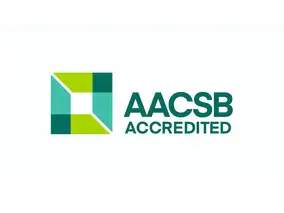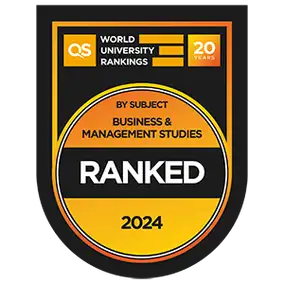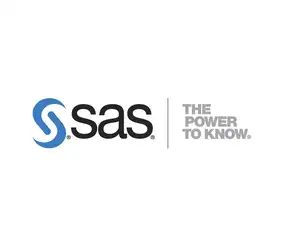Where you can study
International students
International students are not New Zealand citizens or residents.
Specialise in Business for your Master of Analytics at Massey
The Master of Analytics (Business) is a rigorous qualification designed for those wishing to build skills in the rapidly expanding field of data analytics. It is one of the longest running analytics qualifications in New Zealand and is now also taught internationally.
Massey University believes you need to understand the problems organisations face, so this analytics master’s has been grounded in real-world business contexts from the beginning. From problem identification, data acquisition, method selection, analysis and communicating your findings, Massey’s Master of Analytics focuses on what industry is demanding in data analytics graduates.
Apply your knowledge to business problems
When you graduate with a Masters in Analytics (Business) you will have gained highly sought-after skills that allow you to understand a business problem and use machine learning and data mining to solve them. In this business specialisation, you can choose to apply your new-found knowledge and techniques to either marketing or finance.
Gain globally recognised certification
The Master of Analytics is sponsored by the world's leading business analytics software provider – SAS. That means you get the globally recognised SAS Academic Specialisation when you graduate. Lecturers can use SAS business insights and you will gain access to SAS’ global network of clients. This agreement was the first of its kind with a New Zealand university.
Real-world learning
In the last phase of study, you will complete an applied data science project, where you will address a real-world problem in collaboration with an organisation which opens further career and employment opportunities. We also give you training in communicating your findings in a compelling way to a business audience.
A Master of Analytics in Business is a good fit if you:
- want to increase your career prospects by working with big data
- want a dynamic and stimulating career with a secure outlook
- want to be driving businesses forward using cutting-edge technologies.
Planning information
If you study full-time, you’ll take 120 credits per year or 60 credits per semester.
The Master of Analytics is a parts-based qualification. That means you must complete the first part, before moving to the second.
For progression from Part One to Part Two, you must have maintained a B- grade average over the core compulsory courses undertaken in Part One.
It is important to note that the MAnalyt is specifically designed to be started in Semester 1 with the core pillars of statistics, data mining and econometrics. The specialist subject courses in Semester 2 allow you to apply the skills learnt in Semester 1 and extend these into your business area of interest. Finally, you will integrate all skills in the applied project in Summer School.
Practicum
115801 Applied Analytics Project (60 credits)
Or:
115802 Applied Analytics Project Part 1 (30 credits) and
115803 Applied Analytics Project Part 2 (30 credits)
Official regulations
To understand what you need to study and must complete to graduate read the official rules and regulations for this qualification.
You should read these together with all other relevant Statutes and Regulations of the University including the General Regulations for Postgraduate Degrees, Postgraduate Diplomas, and Postgraduate Certificates.
Returning students
For returning students, there may be changes to the majors and minors available and the courses you need to take. Go to the section called ‘Transitional Provisions’ in the Regulations to find out more.
In some cases the qualification or specialisation you enrolled in may no longer be taking new enrolments, so may not appear on these web pages. To find information on the regulations for these qualifications go to the Massey University Calendar.
Please contact us through the Get advice button on this page if you have any questions.
Courses you can enrol in
Course planning key
- Prerequisites
- Courses that need to be completed before moving onto a course at the next level. For example, a lot of 200-level courses have 100-level prerequisite courses.
- Corequisites
- Courses that must be completed at the same time as another course are known as corequisite courses.
- Restrictions
- Some courses are restricted against each other because their content is similar. This means you can only choose one of the offered courses to study and credit to your qualification.
Core courses for the Master of Analytics
As well as the specialisation courses listed below, this qualification has core courses that you will need to complete.
Master of Analytics core courses
Business courses
Either Option One: Marketing
Course code: 156761 Customer Insights 30 credits
A range of analytical techniques will be implemented using real-world data. Emphasis is also given to effective presentation of insights to a non-technical audience.
View full course detailsCourse code: 156762 Return on Marketing Investment 30 credits
The development of computer skills for the empirical analysis of the return of marketing investments on sales and profits, for the purpose of supporting marketing decision making. The coverage includes a wide variety of econometric methods, statistical programming approaches, types of marketing investments, and the reporting of the results.
View full course detailsOr Option Two: Finance
Compulsory course
Course code: 125788 Big Data in Finance and Banking 30 credits
A study of big data application in finance and banking through a combination of theory and practice.
View full course detailsCourse code: 125700 Managerial Finance 30 credits
A study of the theory of finance with an emphasis on managerial decision making.
View full course detailsCourse code: 125740 Advanced Investment Analysis 30 credits
This course provides a comprehensive coverage of advanced theory and practice regarding investments and portfolio management.
View full course detailsCourse code: 125781 Advanced Financial Risk Management 30 credits
This course considers the roles of financial risk management in reducing risk and/or increasing returns in an organisation. Students will be exposed to advanced financial risk management from both theoretical and empirical perspectives.
View full course detailsEntry requirements
Admission to Massey
All students must meet university entrance requirements to be admitted to the University.
Specific requirements
To enter the Master of Analytics you will:
- have sufficient background in statistical analysis tools to satisfy the programme coordinator that you have the capacity to undertake the qualification; and
- have been awarded or qualified for a bachelor’s degree in a relevant subject, with a minimum B- grade average in the higher level courses, or equivalent: or
- have been awarded or qualified for a bachelor’s degree, and have completed at least two years' experience in a relevant field of work or professional activity, or equivalent.
You will provide the following documents:
- Copies of all official academic transcripts for studies taken at all universities other than Massey University.
- Current CV showing all relevant work experience with statistical software.
English language requirements
To study this qualification you must meet Massey University's English language standards.
English language skills
If you need help with your English language skills before you start university, see our English for Academic Purposes (EAP) courses.
Fees and scholarships
Fees, student loans and free fees scheme
Your tuition fees may be different depending on the courses you choose. Your exact fees will show once you have chosen your courses.
There will also be some compulsory non-tuition fees and for some courses, there may also be charges for things such as study resources, software, trips and contact workshops.
- Get an estimate of the tuition fees for your qualification
- View a list of non-tuition fees that may be payable
Already know which courses you're going to choose?
You can view fees for the courses that make up your qualification on the course details pages.
Student loans (StudyLink) and Fees Free scheme
You may be eligible for a student loan to help towards paying your fees.
The New Zealand Government offers fees-free tertiary study for eligible domestic students. Find out more about the scheme and your eligibility on the Fees Free website. To use the site's eligibility checking tool, you will need your National Student Number.
Current and returning Massey students can find their National Student Number in the student portal.
- Student loans (StudyLink)
- Fees Free
- Student portal
Fees disclaimer
This information is for estimation purposes only. Actual fees payable will be finalised on confirmation of enrolment. Unless otherwise stated, all fees shown are quoted in New Zealand dollars and include Goods and Services Tax, if any. Before relying on any information on these pages you should also read the University's Disclaimer Notice.
Careers and job opportunities
Graduates with business analytical skills, and the ability to apply those skills to real-life situations, are in very high demand across all industry sectors. Professional services firms and government agencies also seek specialists in this field.
After completing this qualification, potential roles include
- consultant
- business analyst
- investment specialist
- customer insights officer
- database analyst
- business insight executive
- supply management specialist.
If you are currently working in marketing, finance, or supply chain management, this qualification will broaden your skillset and allow you to further your career.
Earn more
A 2017 Ministry of Education publication The post-study earnings and destinations of young domestic graduates, found that in New Zealand:
- Young master’s graduates earn more than one and a half times more than the national median (five years after study)
- Earnings and employment rates increase with the level of qualification completed
- Five years after completion, the median earnings of young master’s graduates are 15% higher than for those with a bachelor’s degree.
International students
New Zealand is a great place to study. Massey University’s reputation is supported by our international rankings, accreditations and associations. We are rated five star plus by the QS World University Rankings.
Massey University has small class sizes, and our lecturers and staff are friendly and approachable.
As an international student, there are entry requirements that will apply to you. We recommend that you apply at least three months before your anticipated start date so your application can be processed in time. There are additional steps you will need to take. These include obtaining a visa and travel bookings if your study is to be in New Zealand.
What our students say
“What convinced me to choose the Massey Master of Analytics programme was the combination of a theory and practical based curriculum that I could complete in twelve months. We were equipped with relevant skills that are highly sought-after in today’s job market.”

Accreditations and rankings

Association to Advance Collegiate Schools of Business (AACSB)
Massey Business School is rated in the top 5% of global business colleges by AACSB International.

QS Ranking - Business Management Studies
Massey University is ranked by QS (Quacquarelli Symonds) as one of the top 400 universities for business and management.

SAS Analytics
Graduates of our Master of Analytics receive the globally recognised SAS certification.
Related study options
Applied Professional Practice – Bachelor of Business
You'll combine theory with authentic workplace experiences as you build professional skills, work in cross-functional teams and tackle real-world challenges. Explore your own value set, strengths, challenges, and passions as you become a practical, capable business professional.
Business Administration – Postgraduate Certificate in Business
Take your business and management skills to the next level. Gain valuable professional development with Massey’s Postgraduate Certificate in Business (Business Administration).
Business Analytics – Bachelor of Business
Develop your analytical skills and enhance your ability to extract value from data.
Business and Sustainability – Master of Sustainable Development Goals
This qualification will give you an advanced grounding in the theory, practice, and application of the United Nations Sustainable Development Goals related to business and sustainability.
Certificate in Business Studies – CertBusStuds
Take the first step towards a degree in business with Massey's Certificate in Business Studies.
Executive Master of Business Administration – EMBA
The Executive MBA (EMBA) is a 240-credit, world-class, career development qualification that prepares you to take on top-level roles in business, government, and non-profit organisations in New Zealand and globally.
Graduate Certificate in Emergency Management – GCertEmergMgt
Take your first step towards a career in emergency management with Massey’s Graduate Certificate in Emergency Management.
Graduate Diploma in Emergency Management – GradDipEmergMgt
Massey’s Graduate Diploma in Emergency Management will broaden your knowledge and skills in emergency management to help develop community resilience.
International Business – Bachelor of Business
Gain the knowledge and skills, critical to business success in times of global challenges.
International Business – Master of Management
Move your career in a new direction with Massey’s Master of Management (International Business). Develop your skills and knowledge related to international business.
Master of Emergency Management – MEmergMgt
With Massey’s Master of Emergency Management, you’ll learn to become a leader in managing emergencies effectively at operational and strategic levels.
Master of Health Service Management – MHSM
Through Massey’s internationally recognised, Master of Health Service Management qualification you’ll gain the expertise to advance your career.
Postgraduate Certificate in Emergency Management – PGCertEmergMgt
Increase your knowledge of emergency management issues, practices, and policies with Massey’s Postgraduate Certificate in Emergency Management.
Postgraduate Diploma in Emergency Management – PGDipEmergMgt
The Postgraduate Diploma in Emergency Management will broaden your knowledge of disaster prevention and management.
Postgraduate Diploma in Health Service Management – PGDipHSM
This qualification is for those already working in the health or disability sector, who wish to advance their knowledge and skills for positions in health service management.
Sustainability – Master of Management
Gain the skills to be an effective manager within a sustainable-focused industry, or bring an increasingly important perspective to any business.
Without Specialisation – Diploma in Business Studies
The Diploma in Business Studies is a flexible qualification that can be completed in one year full-time, and may be a stepping-stone to a Bachelor of Business.
Without Specialisation – Graduate Diploma in Business Studies
Keen to change the direction of your career? Massey’s Graduate Diploma in Business Studies enables you to study another subject without completing a second bachelor’s degree.
Without Specialisation – Postgraduate Diploma in Business
Tailor your diploma to your interests and your lifestyle.
Without Specialisation – Postgraduate Certificate in Business
Whether you’re interested in a specific professional development course, or entry to further study, the PGCertBus offers the flexibility to study in the areas you choose.
Useful planning information

Key information for students
Compare qualifications and academic information across different New Zealand institutions. Learn more on careers.govt.nz
